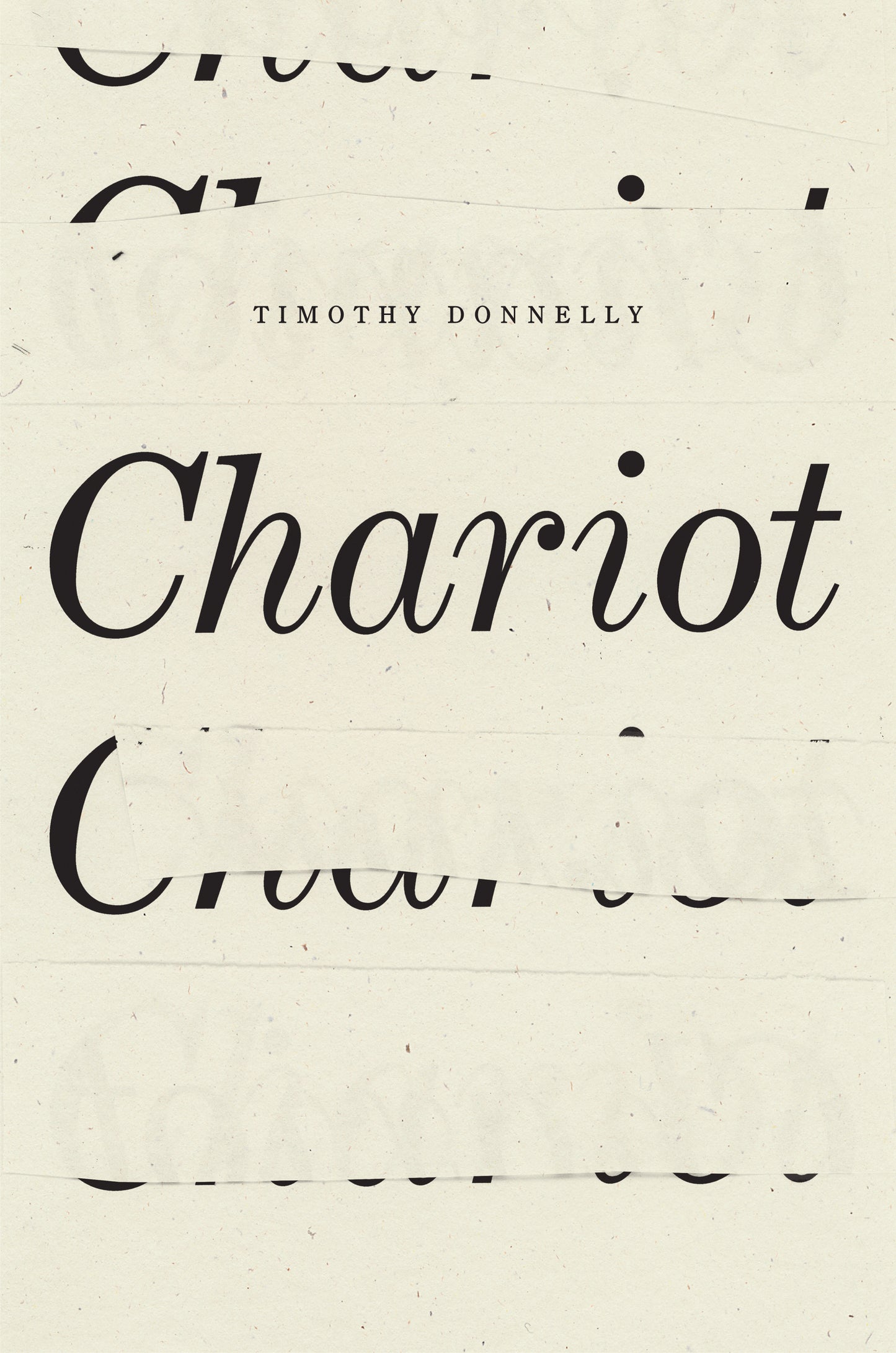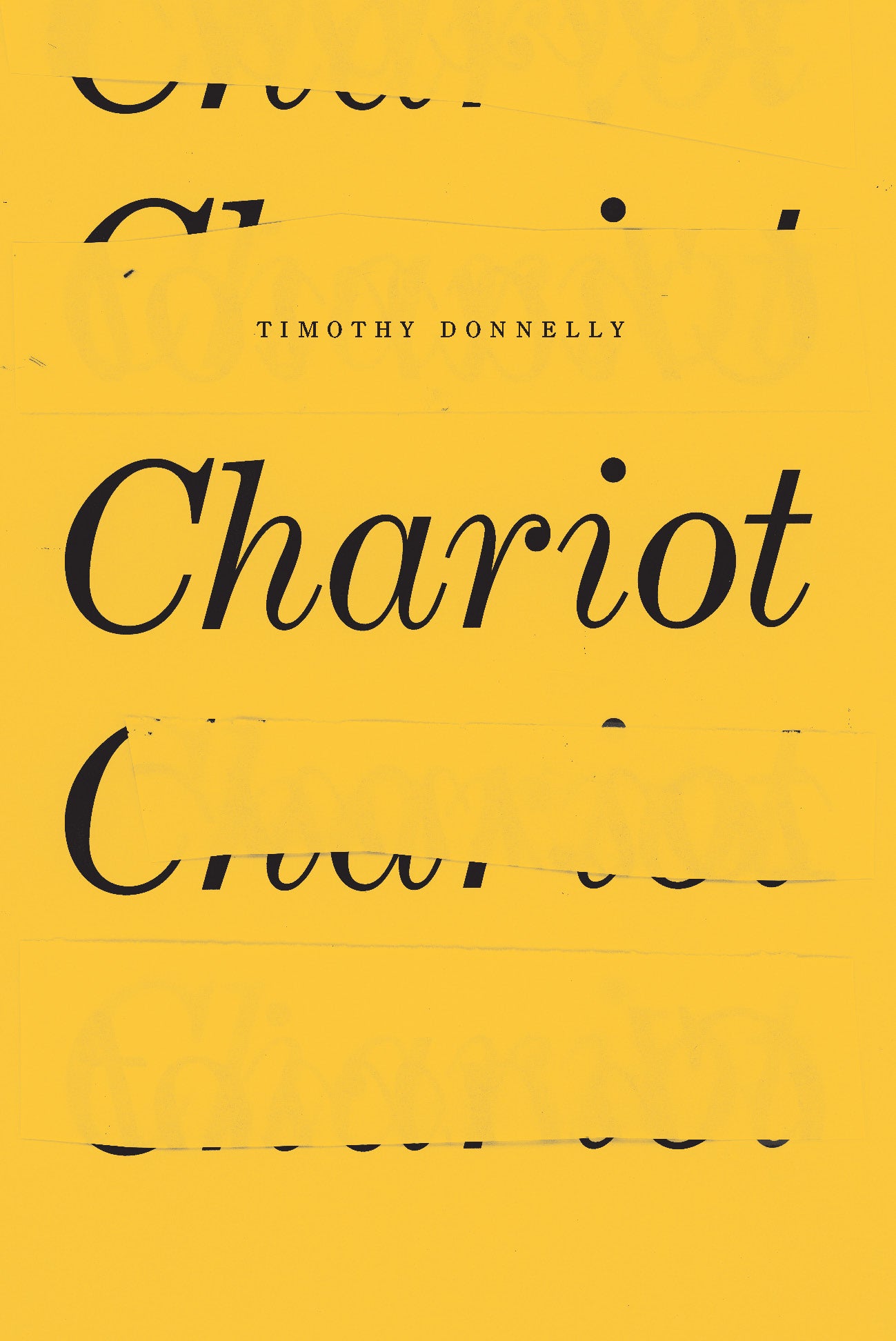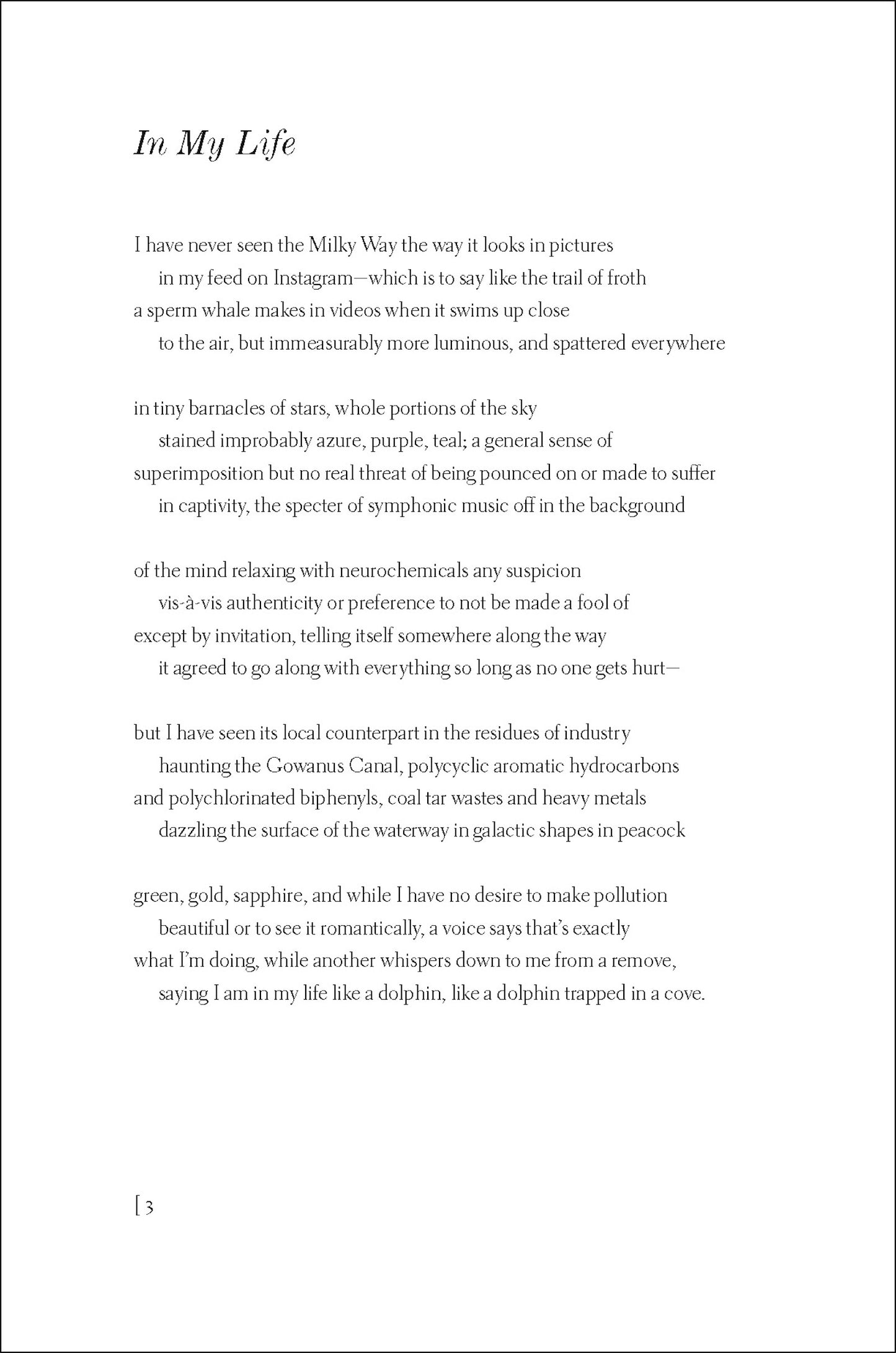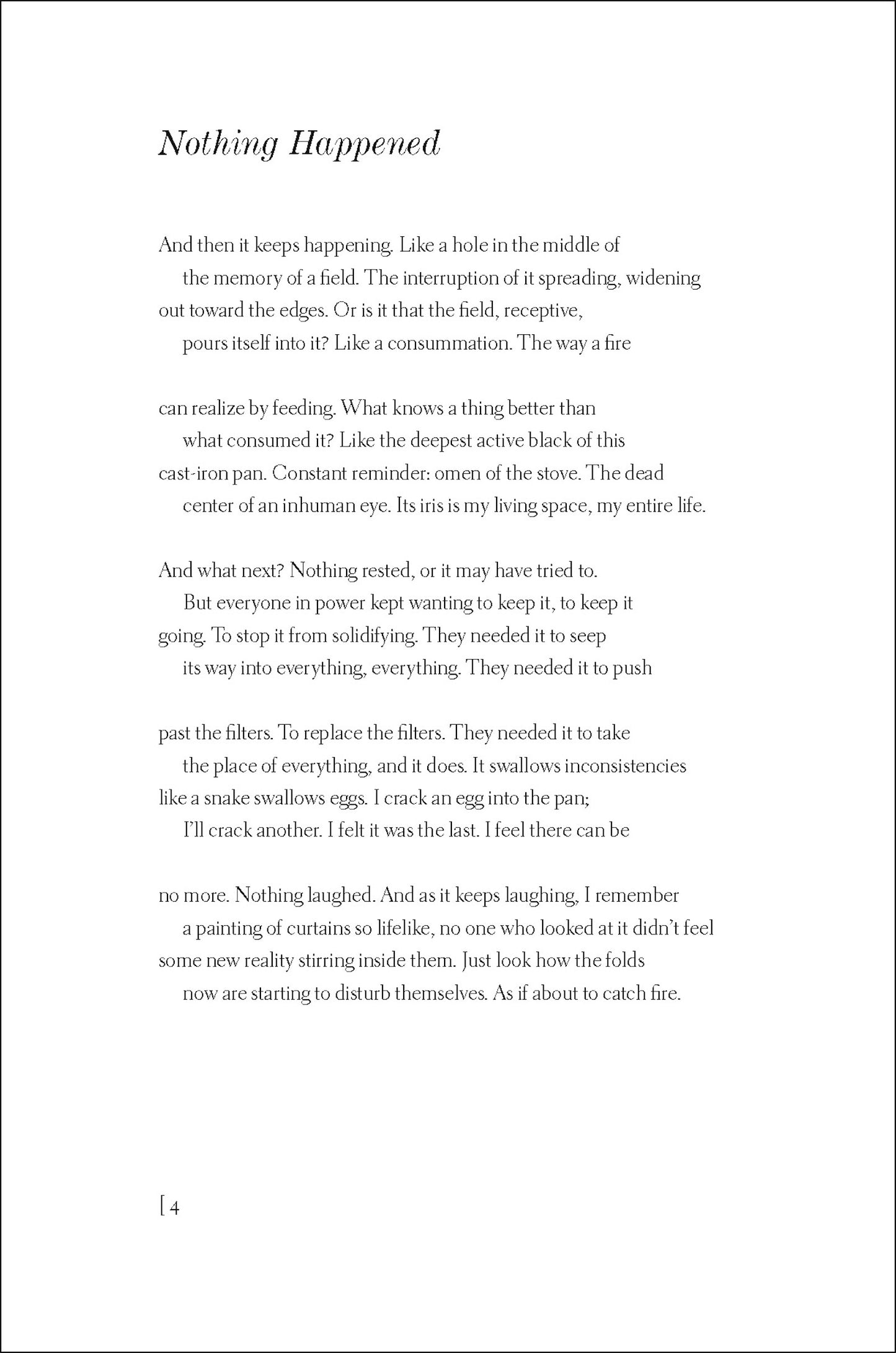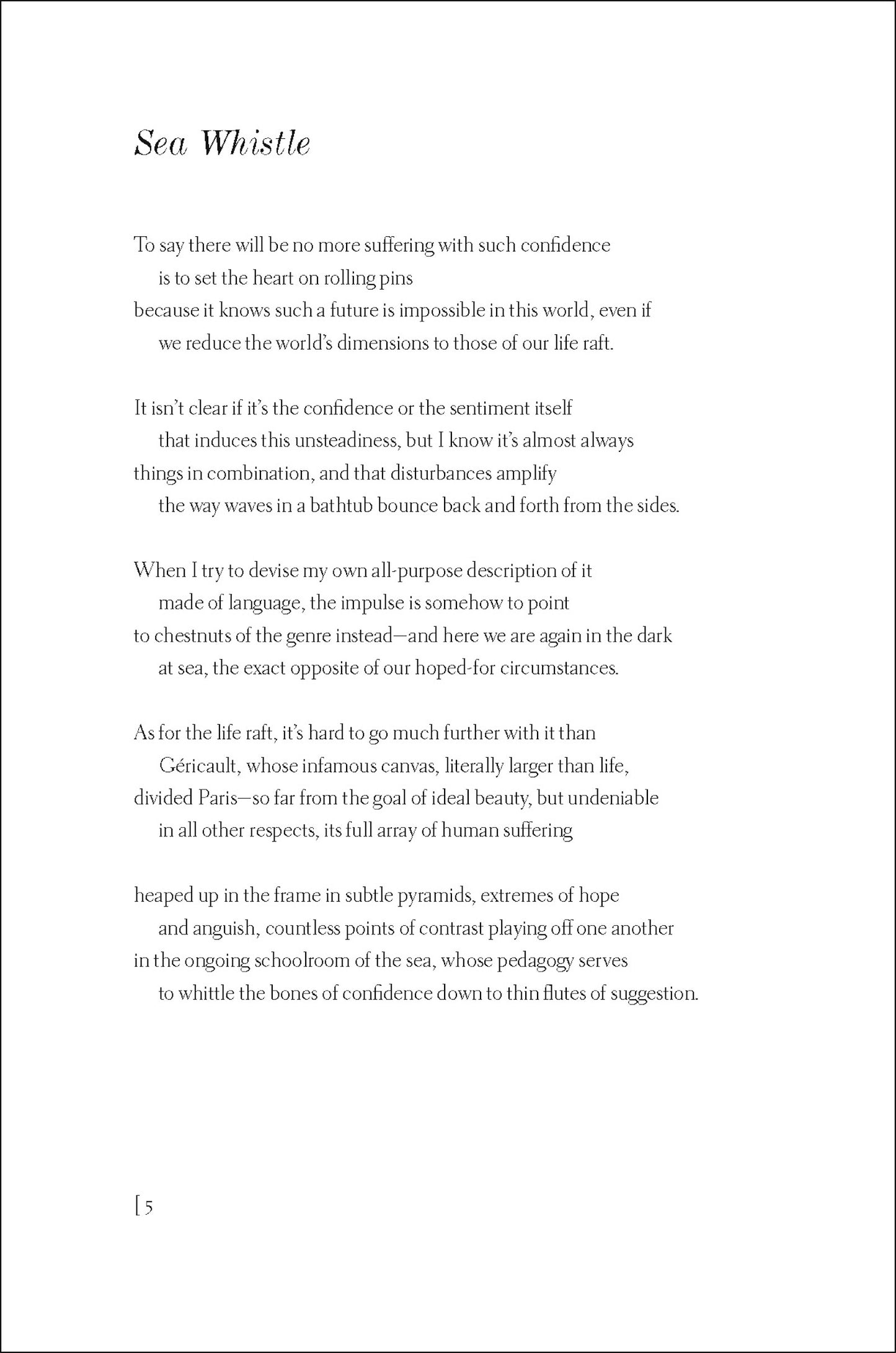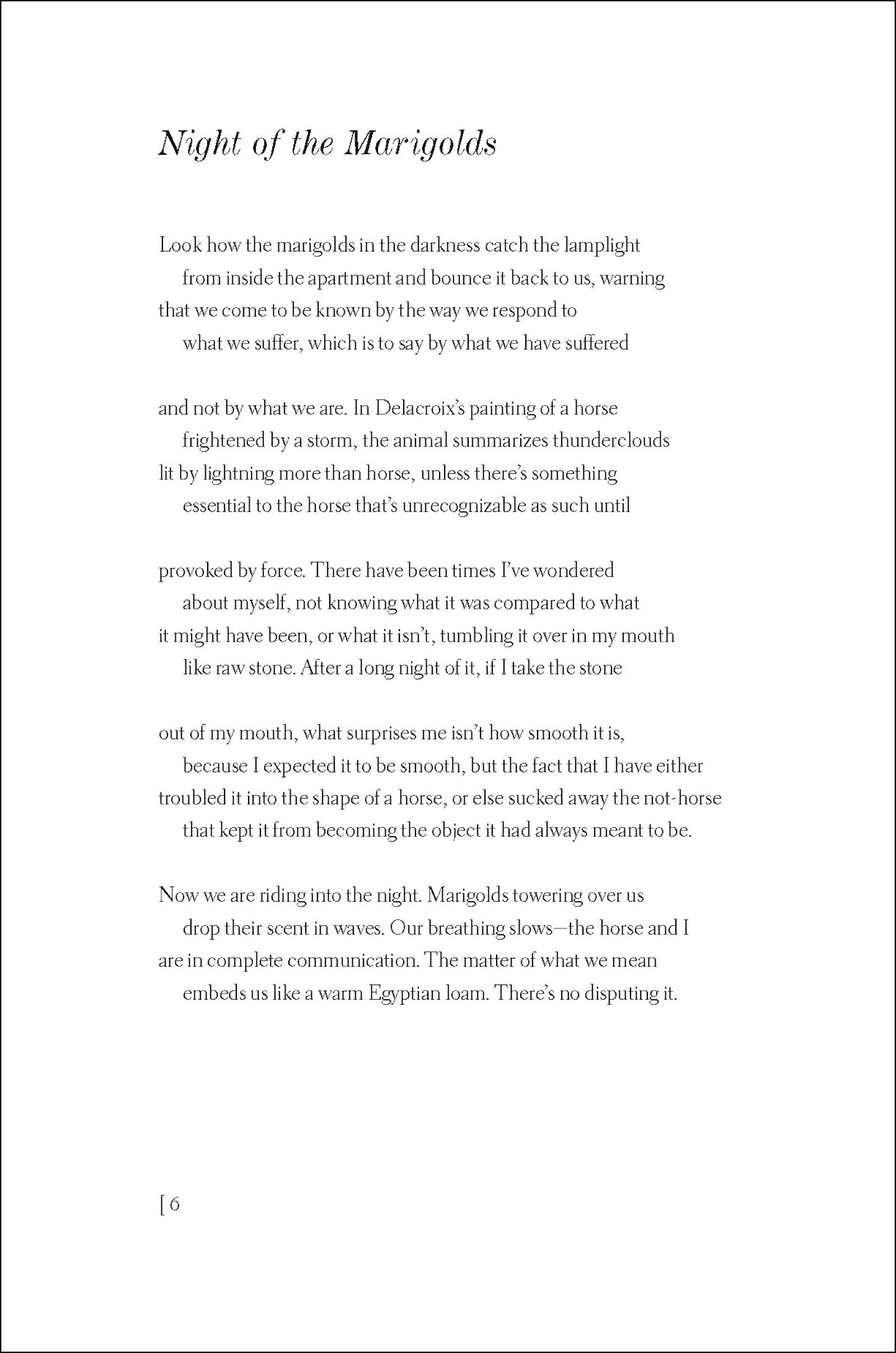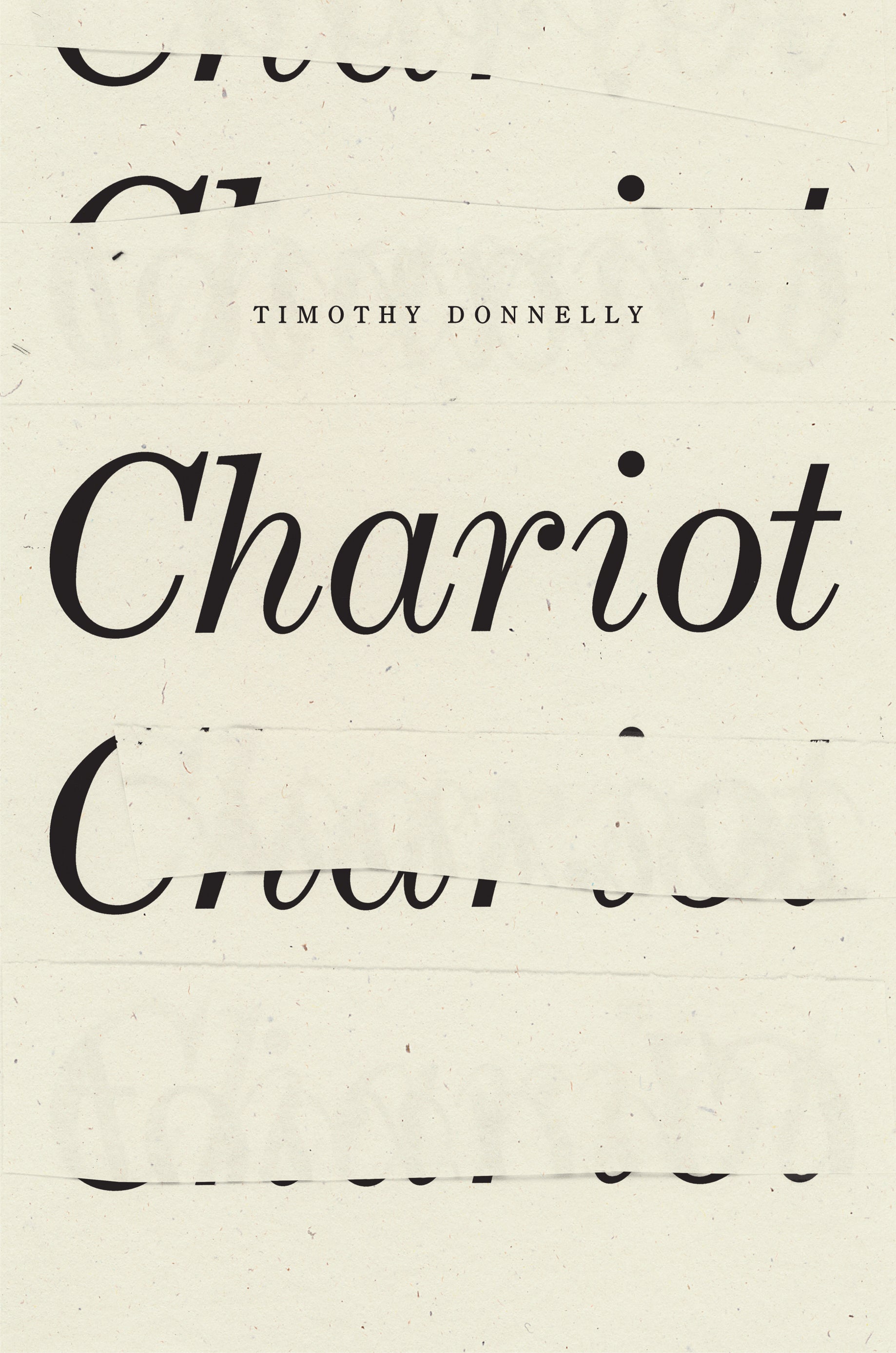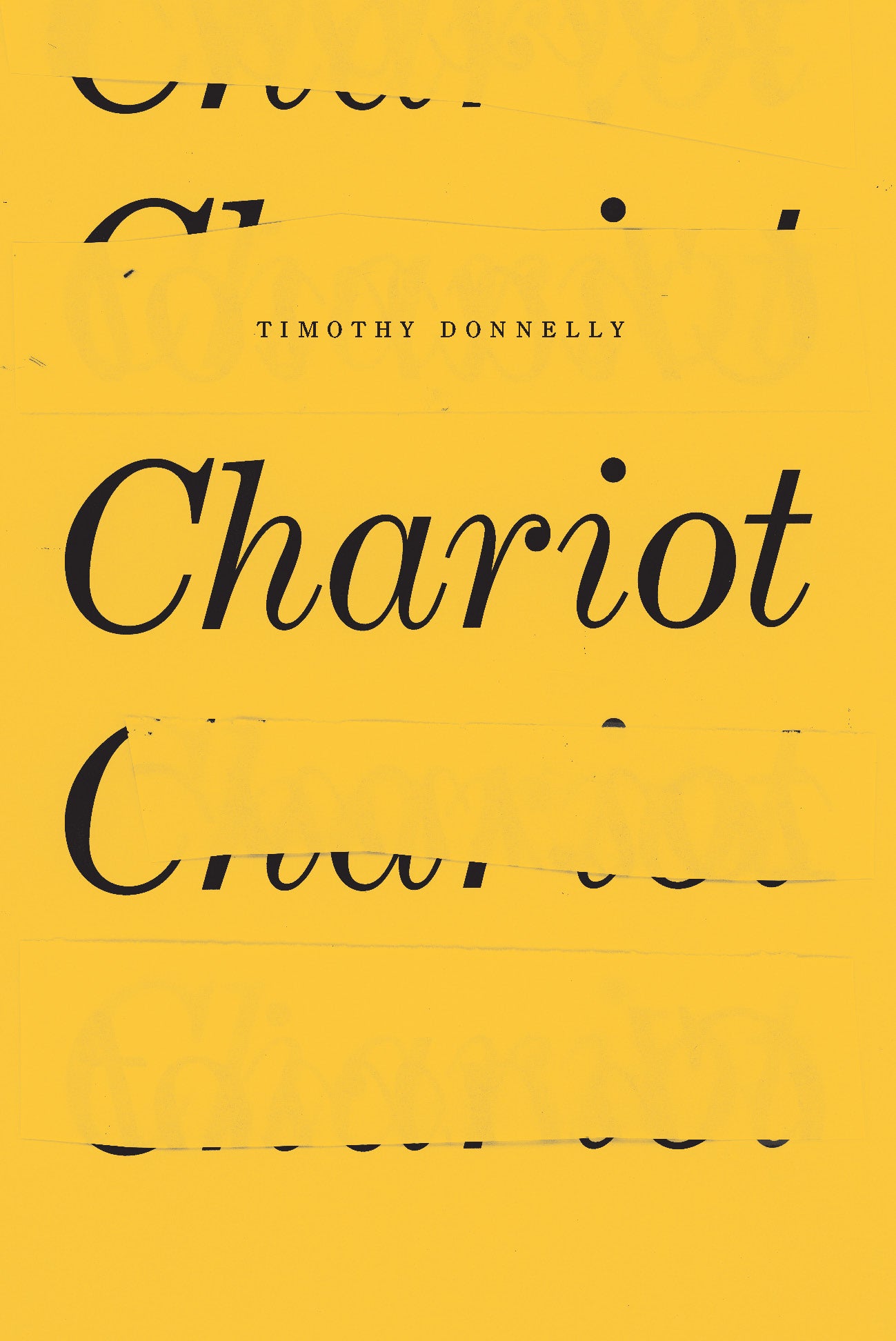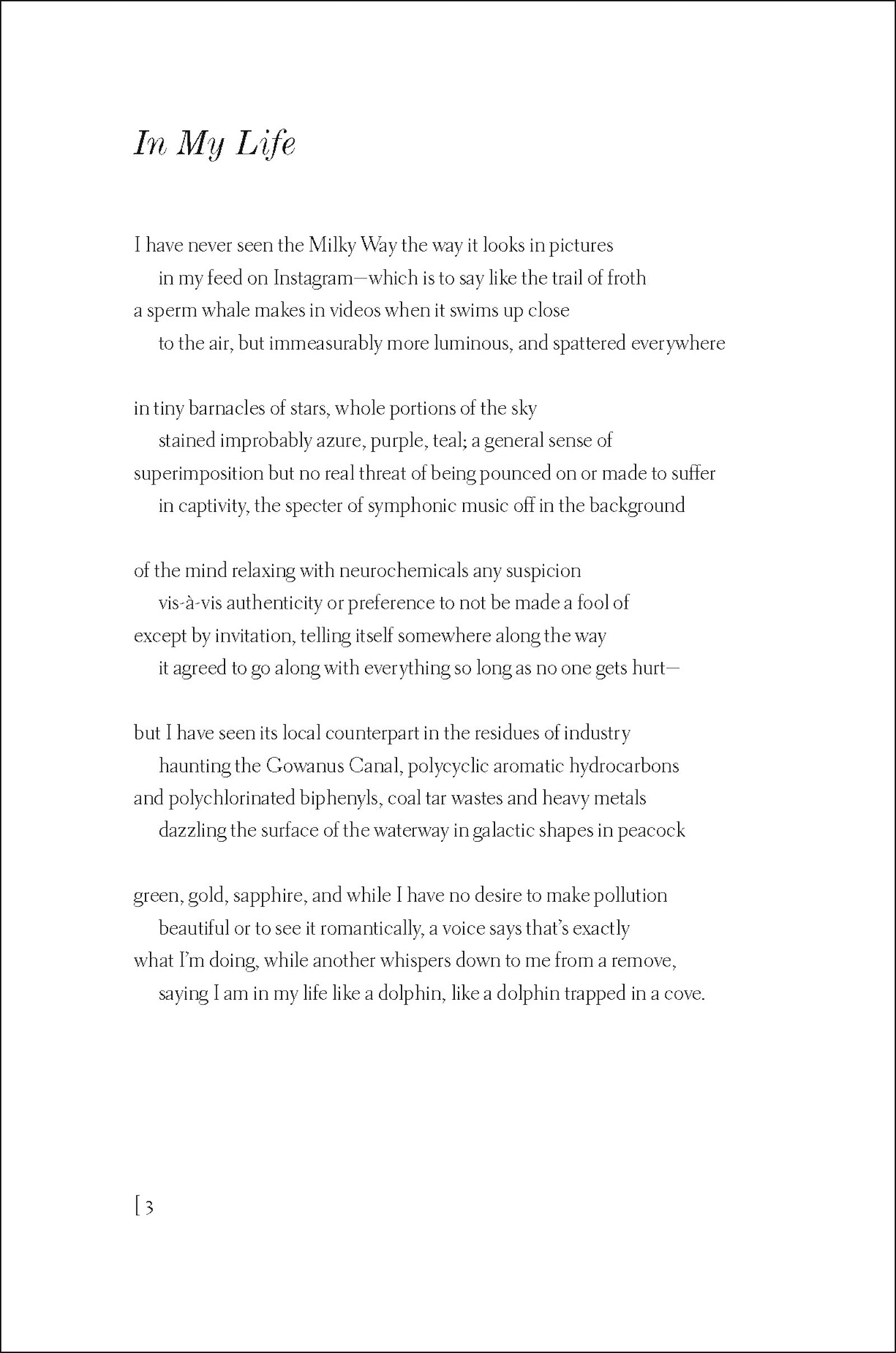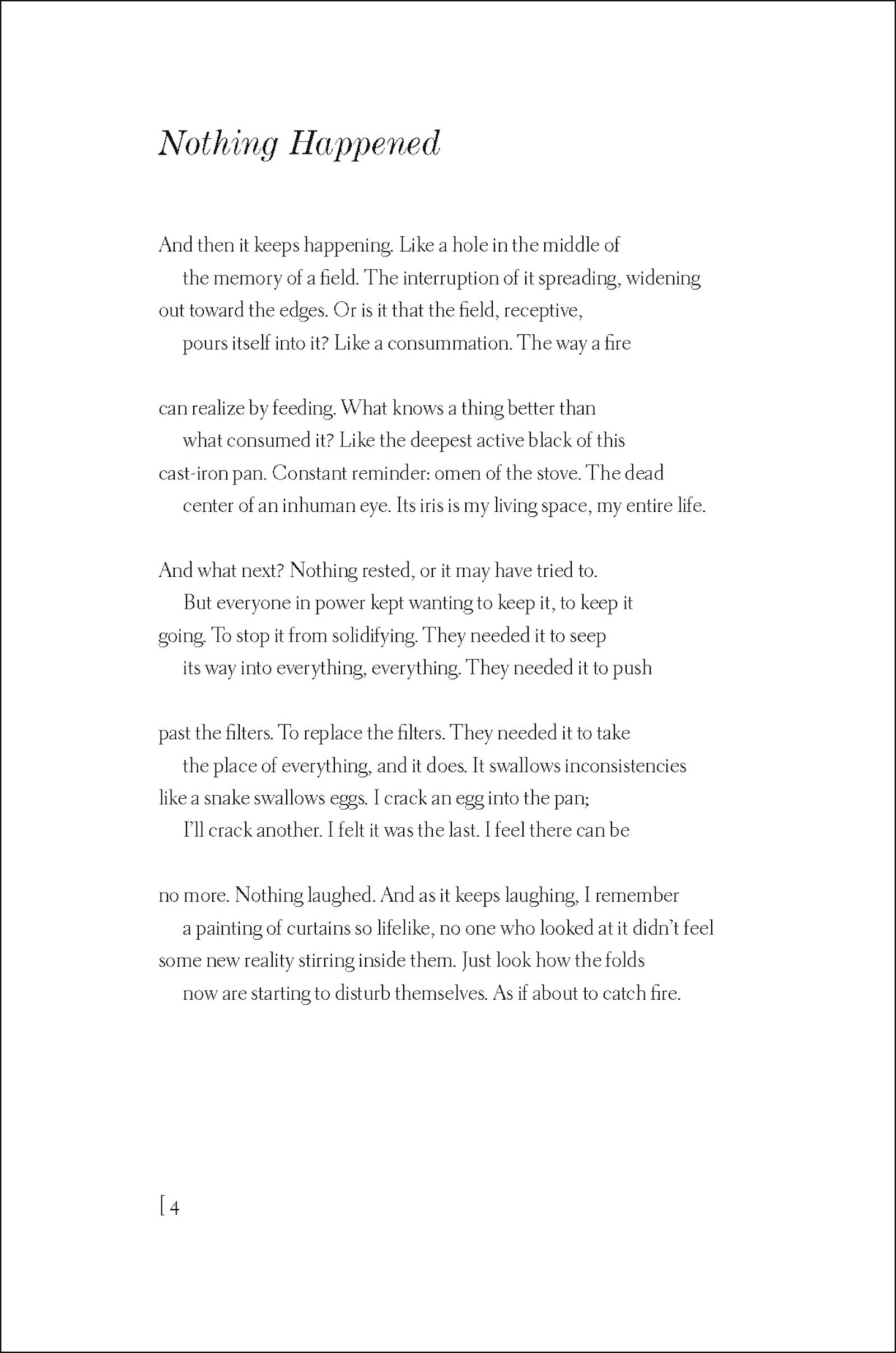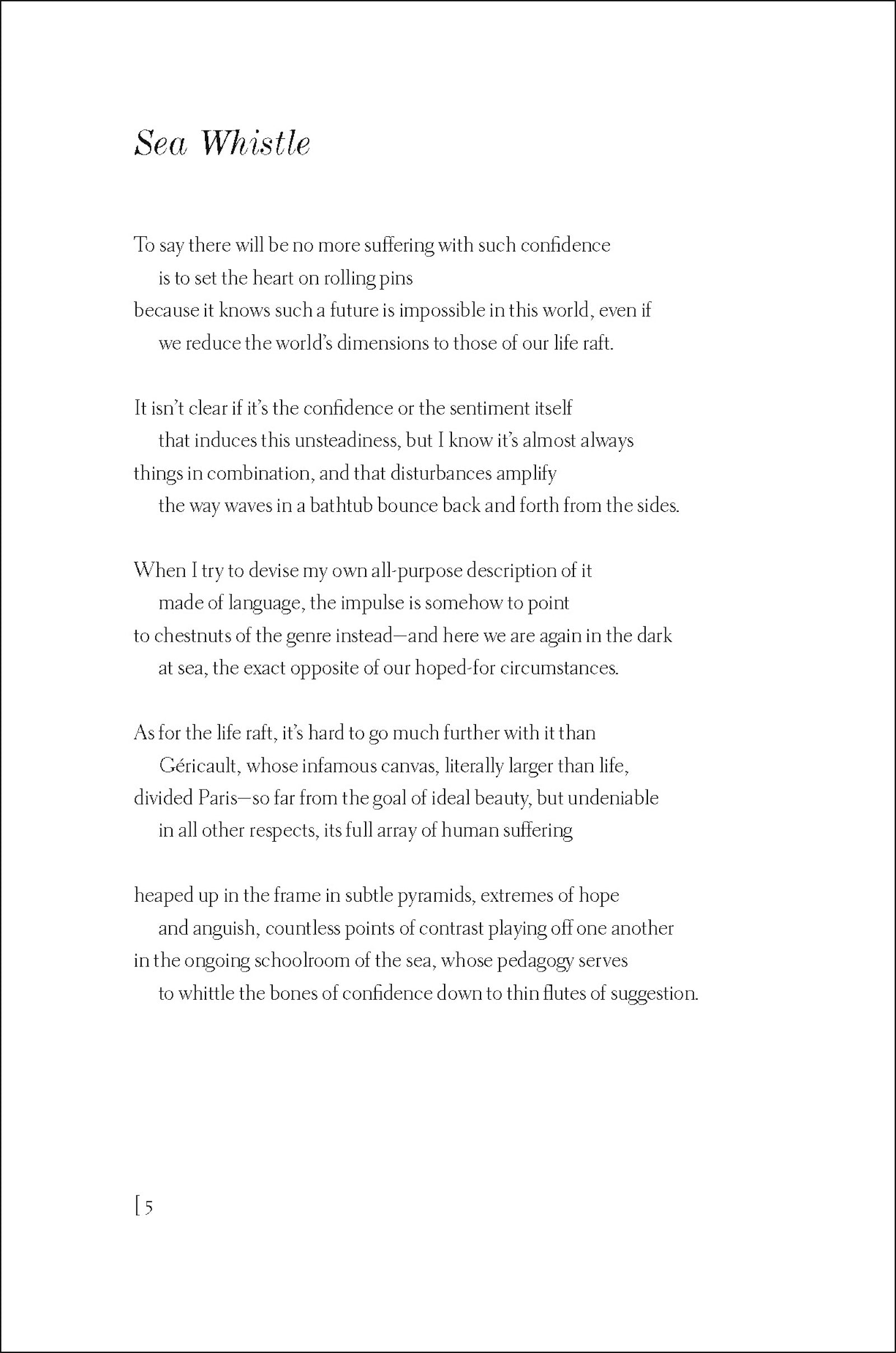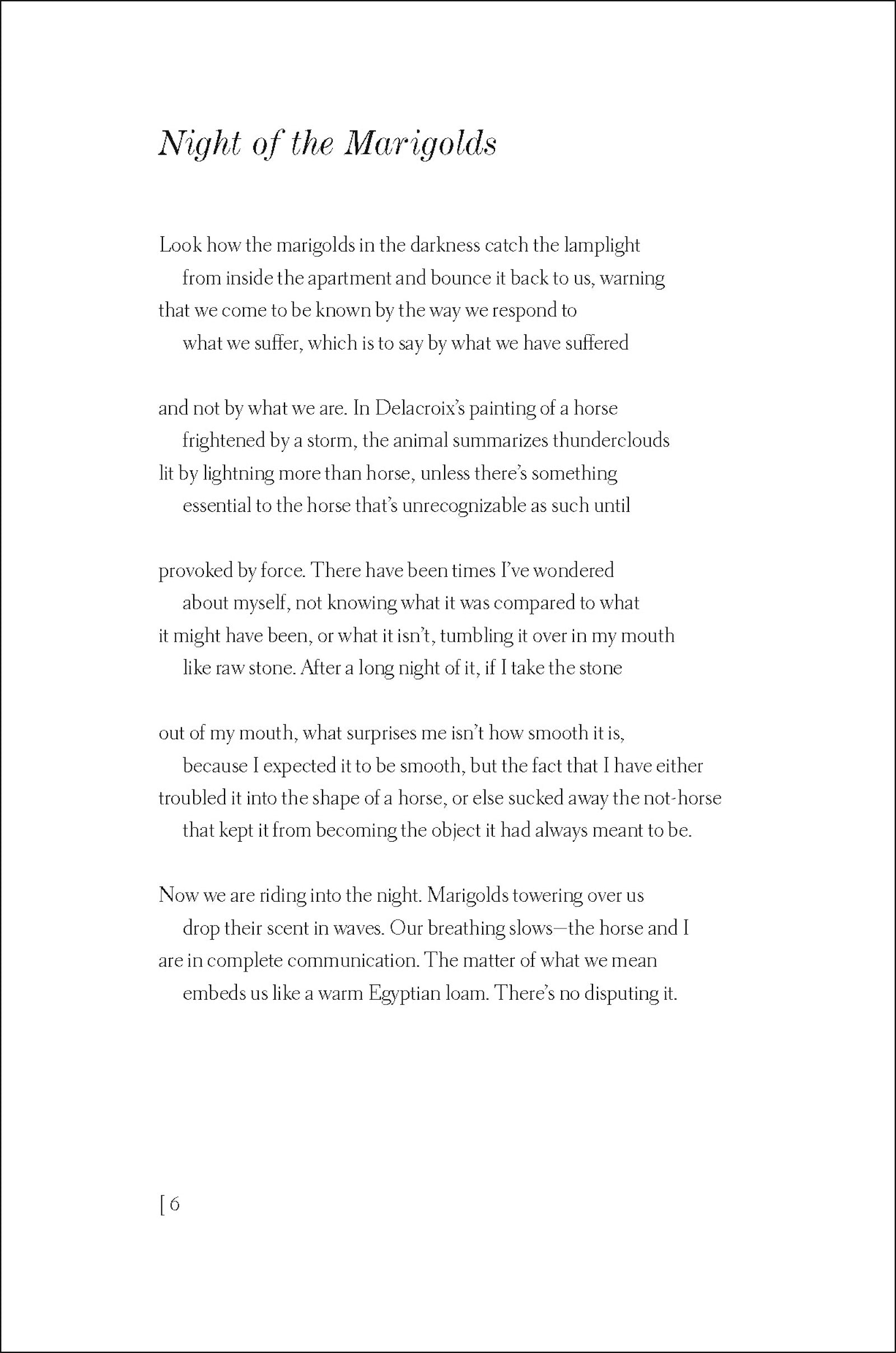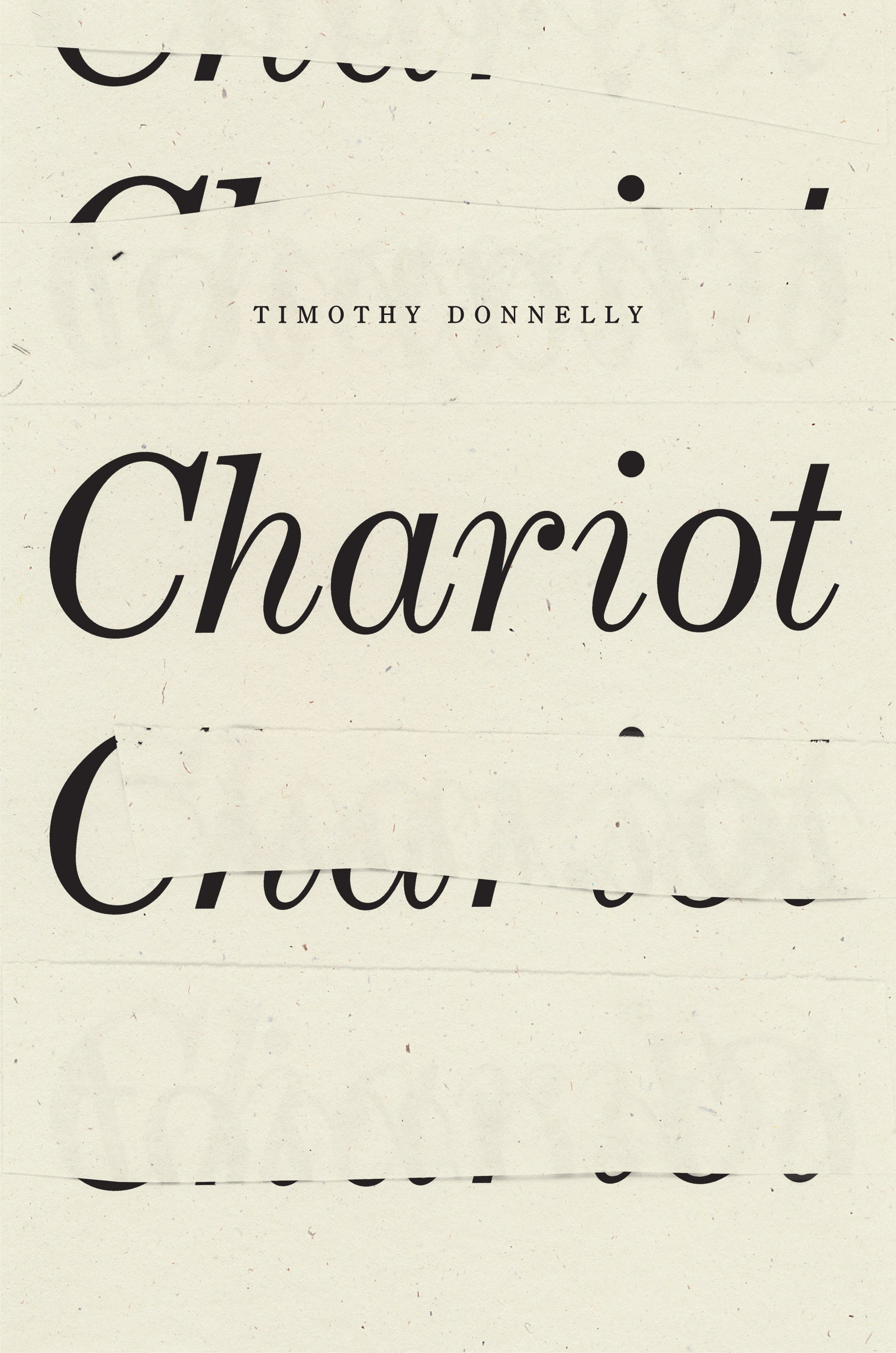
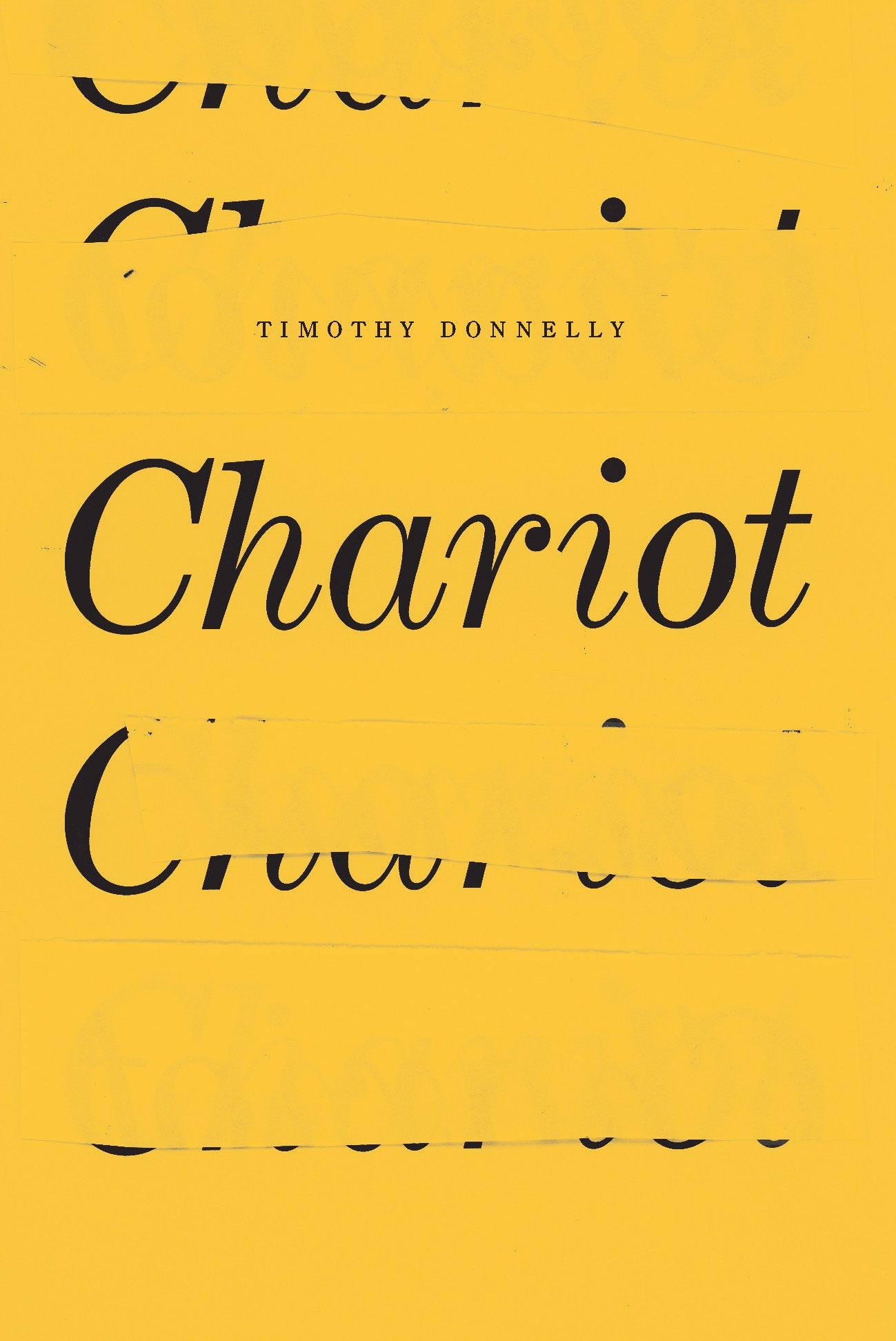
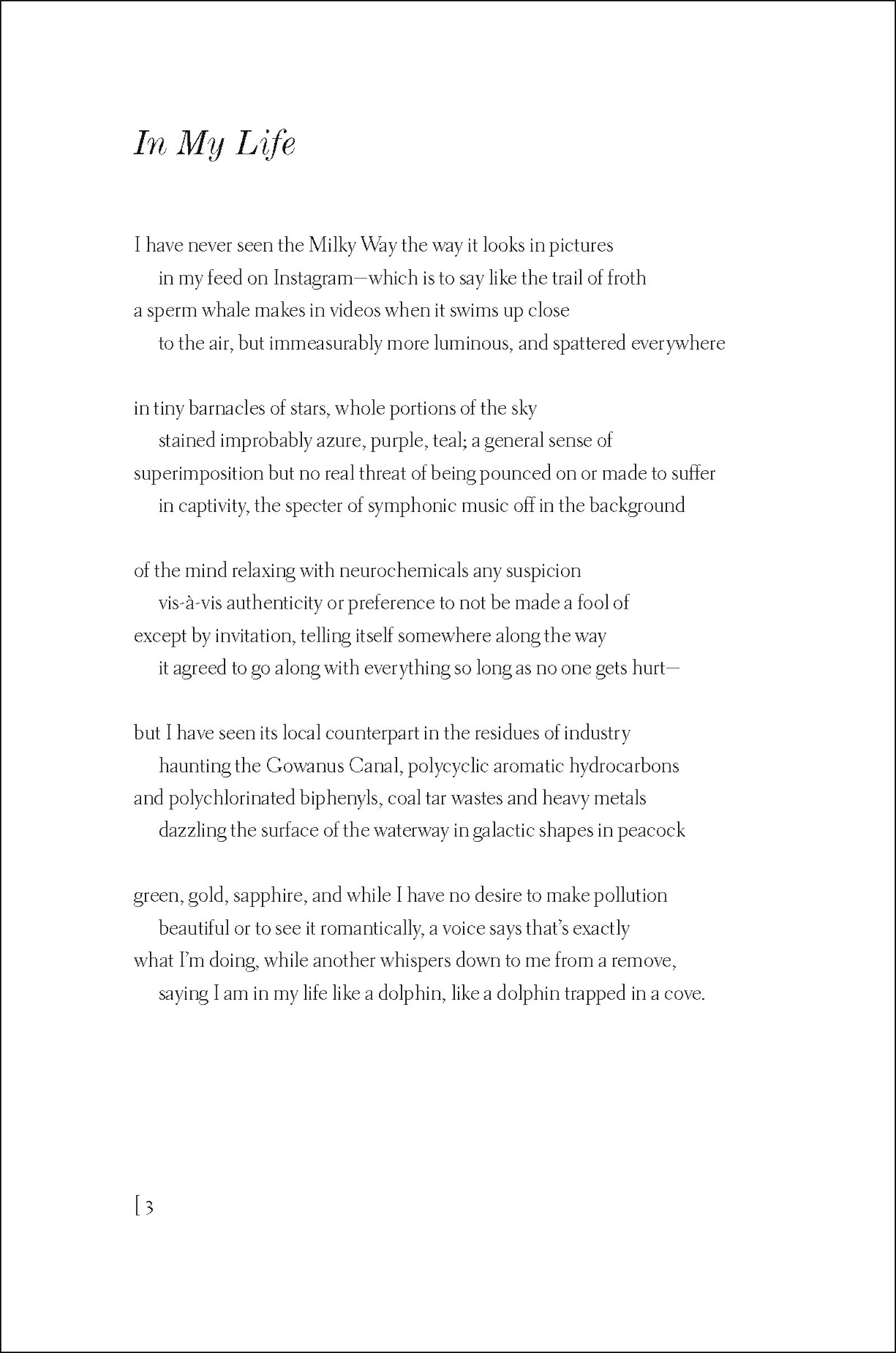
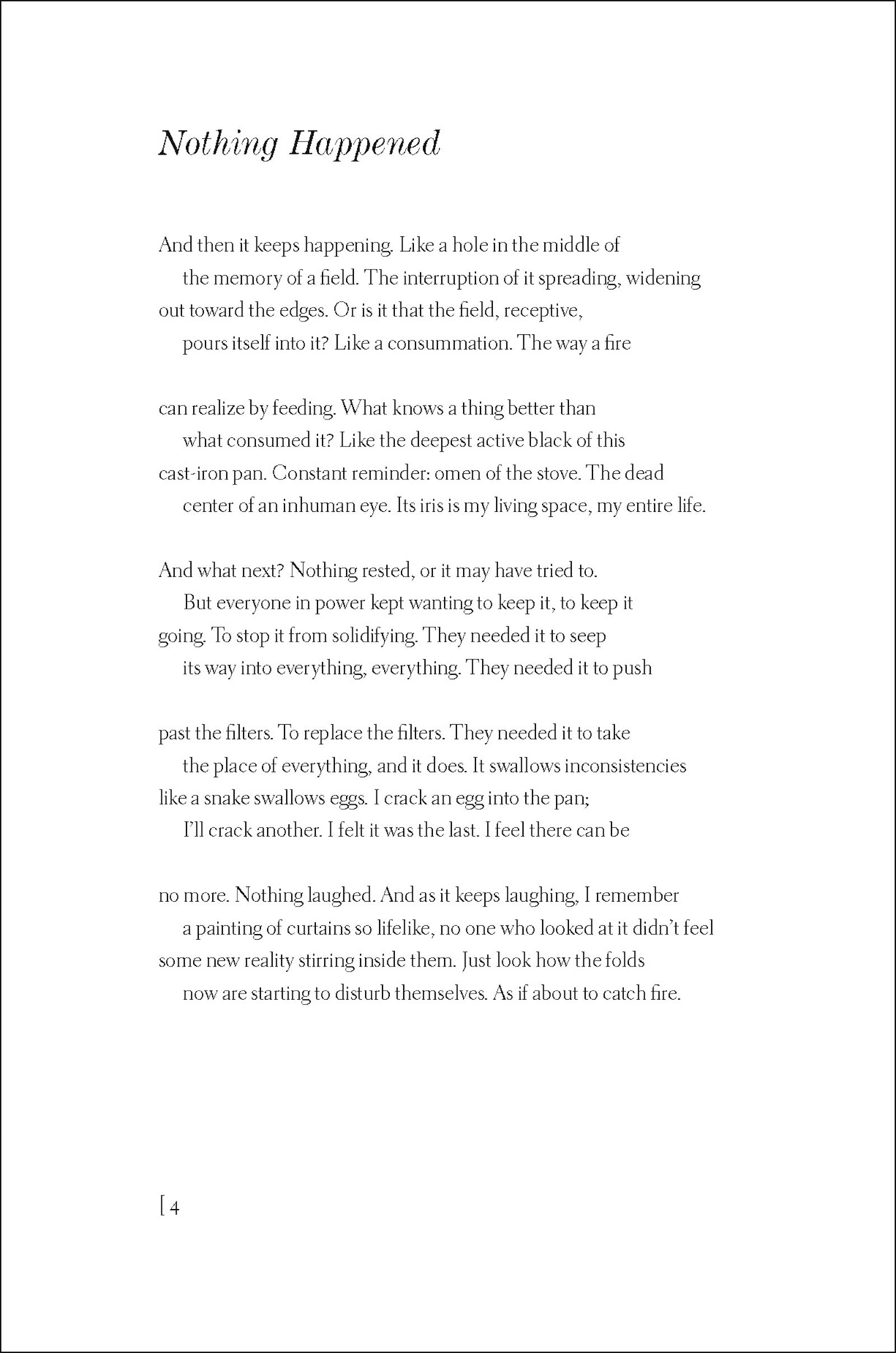
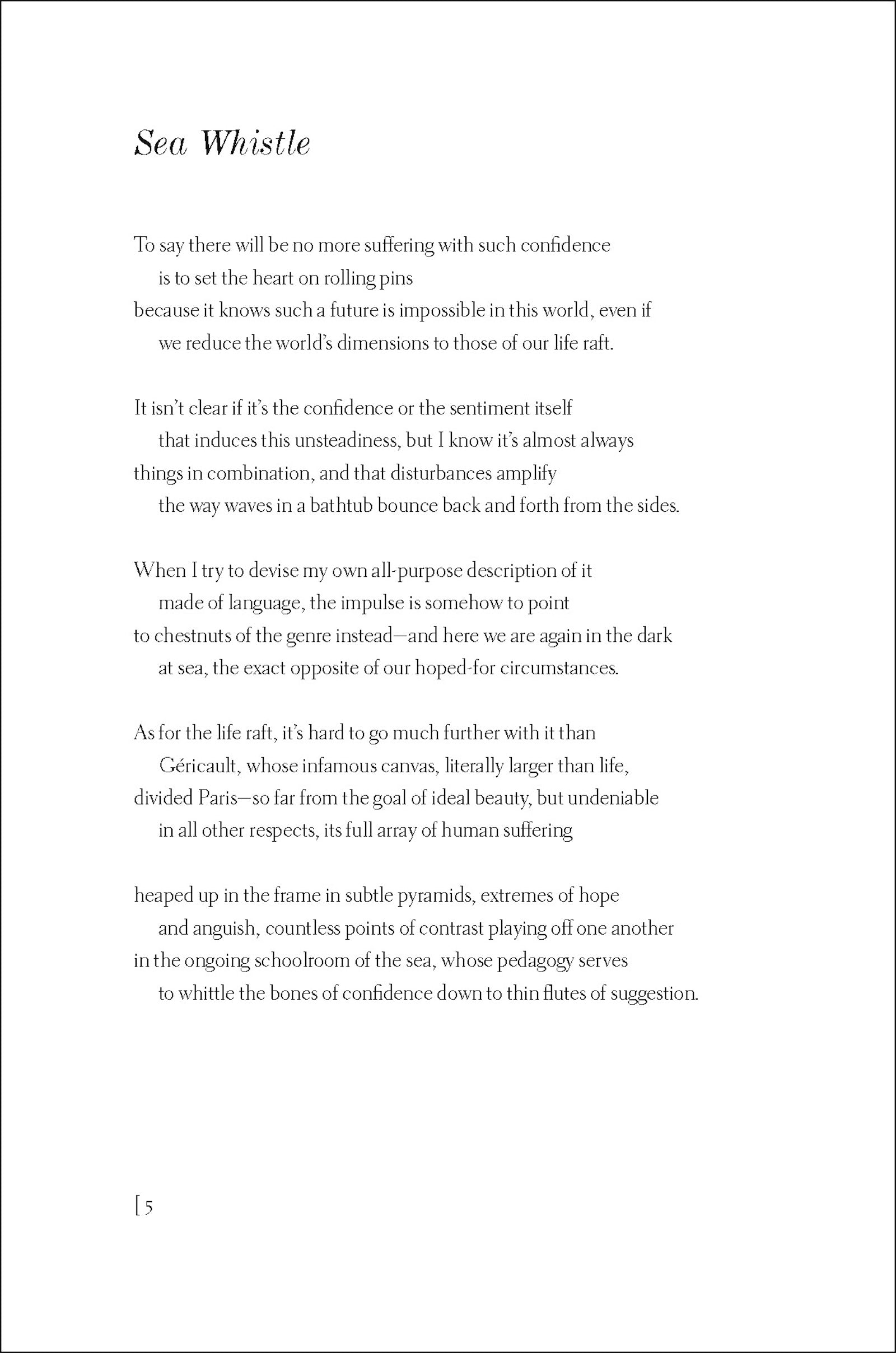
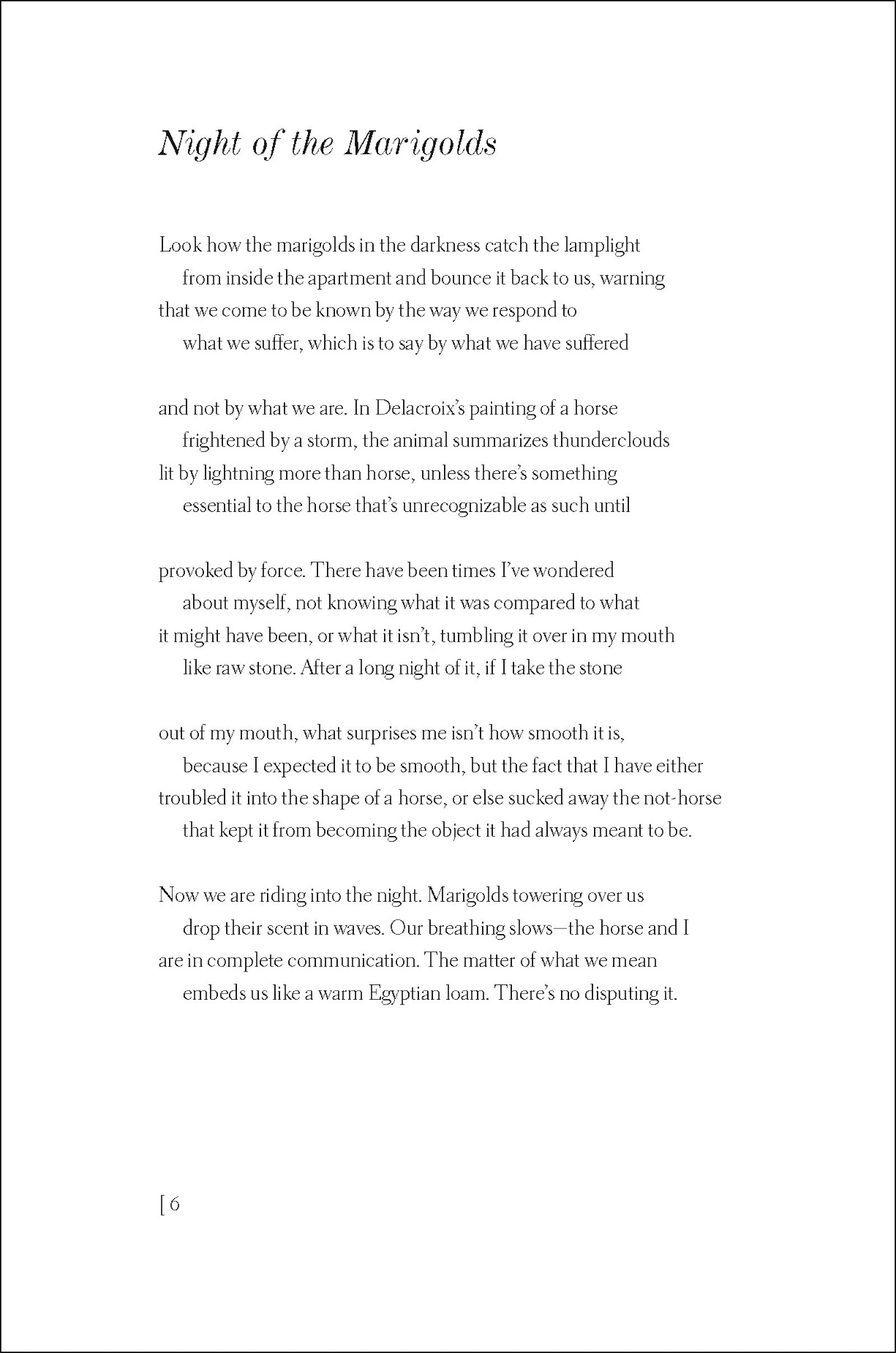

Chariot
Chariot
-
Timothy Donnelly’s fourth collection of poems, Chariot, ferries the reader toward an endless horizon of questioning that is both philosophical and deeply embodied. “How did we get here?” he asks in his title poem—one of several in conversation with French symbolist Odilon Redon—to which he responds, “Unclear, if it matters; what matters // is we stay—aloft in possible color.” With a similar sensibility to previous collections The Problem of the Many and The Cloud Corporation (winner of the Kingsley Tufts Award), Chariot deepens Donnelly’s inquiry into artistic histories, from Jean Cocteau to The Cocteau Twins, while celebrating the power of poetic imagination to transport us to new zones of meaning and textual bliss. The collection also marks an exciting shift in form for Donnelly, who confines these new poems to twenty lines each, so that to read Chariot is to look through a many-paned, future-facing window, refracting and reflecting, letting all the light in.
Also available as an audiobook -
These poems are firmly lyric, eschewing narrative. With each poem undertaking a formal constraint of twenty lines across five stanzas, I found myself delighted to linger and trace Donnelly’s twisting syntaxes.
Mike Good, Colorado ReviewAs twenty years ago Twenty-Seven Props seemed almost the archetype of a brilliant young poet’s debut book, a dazzling surface that kept its secrets closely guarded, so Chariot seems the work of a mature one, with its subtler music, deeper resonances, and—without being confessional, in the familiar sense—a deeper transparency, a greater openness.
Paul Scott Stanfield, Hong Kong Review of BooksIf you don’t associate twenty-first-century poetry with joyrides, try hopping on Timothy Donnelly’s trains of thought. They run on unpredictable tracks, given to unpunctuated accelerations, slapstick Freudian slips, shortcuts through slang, throwbacks into archaism, and frequent detours through English’s baggiest, least redeemable registers—followed, just as frequently, by conclusions of epigrammatic crispness.
Christopher Spaide, Poetry FoundationChariot pursues the future while prying into the past, all with Donnelly’s signature wit and variousness.
New England ReviewDonnelly appears as the almost-unwilling captain of the ship of absurdity which all sail upon, and that poetry attempts to clarify. These layered poems are full of worthy questions.
Publishers WeeklyThere’s nothing new about poets interrogating their own medium, but Donnelly does it in a more satisfying way (at least to me) than most because for him it’s much more than an intellectual problem to solve; it’s how he expresses (quite beautifully) a deeply felt (and enchanted) kind of epistemological heartbreak, a key element to Donnelly’s work that Richard Howard identified in the poet’s first book twenty years earlier and is still felt today.
John Ebersole, Tourniquet Review
I’m less certain that long poems are necessarily more challenging than shorter poems, something Timothy Donnelly’s excellent new collection, Chariot has underscored. But ‘challenging’ isn’t quite the right word. These poems are dense, elusive, impenetrable, clouded, thick....(but) there has always been a wry lightness, coupled with a thoroughgoing earnestness, to Donnelly’s elusive poetry, and Chariot continues that tradition. That somewhat off-kilter combination is one of the reasons I keep coming back to Donnelly’s work, and it’s a hallmark of his voice.
Kevin O’Rourke, Michigan Quarterly ReviewThe poet’s capacity to make the many-sidedness of things visible, to make the comparisons take on a life of their own, feel in some sense life-affirming, as light in the darkness often is....The baroque comparisons and equally baroque syntax that those who’ve read Donnelly’s previous work have come to expect find all sorts of ways of repurposing trash, material and linguistic, to surprising and beautiful ends. In spite of all that excess, nothing is wasted....In poem after poem, Donnelly offers an illustration of the hardest task of the poet, to find a way of making both the degraded waterways and degraded commons of language into something we can admire, something that holds the light in it.
[Donnelly] speaks of a lost youth, too—though, tellingly, it is an Eden in which he can “drift off” into reverie, away from a world that makes such “inwardness” feel less like his “birthright as a person” and more “like thieving liverwurst sandwiches one should / leave on the platter for the hardworking women, the men // who need” them
Hugh Foley, The London Magazine
Robert Archambeau, The Hudson Review
Publication: May 2023
ISBN# 9781950268771 (6.12 x 9.25, 112pp, paperback)
ISBN# 9781950268818 (6.12 x 9.25, 112pp, limited edition hardcover)
Couldn't load pickup availability
